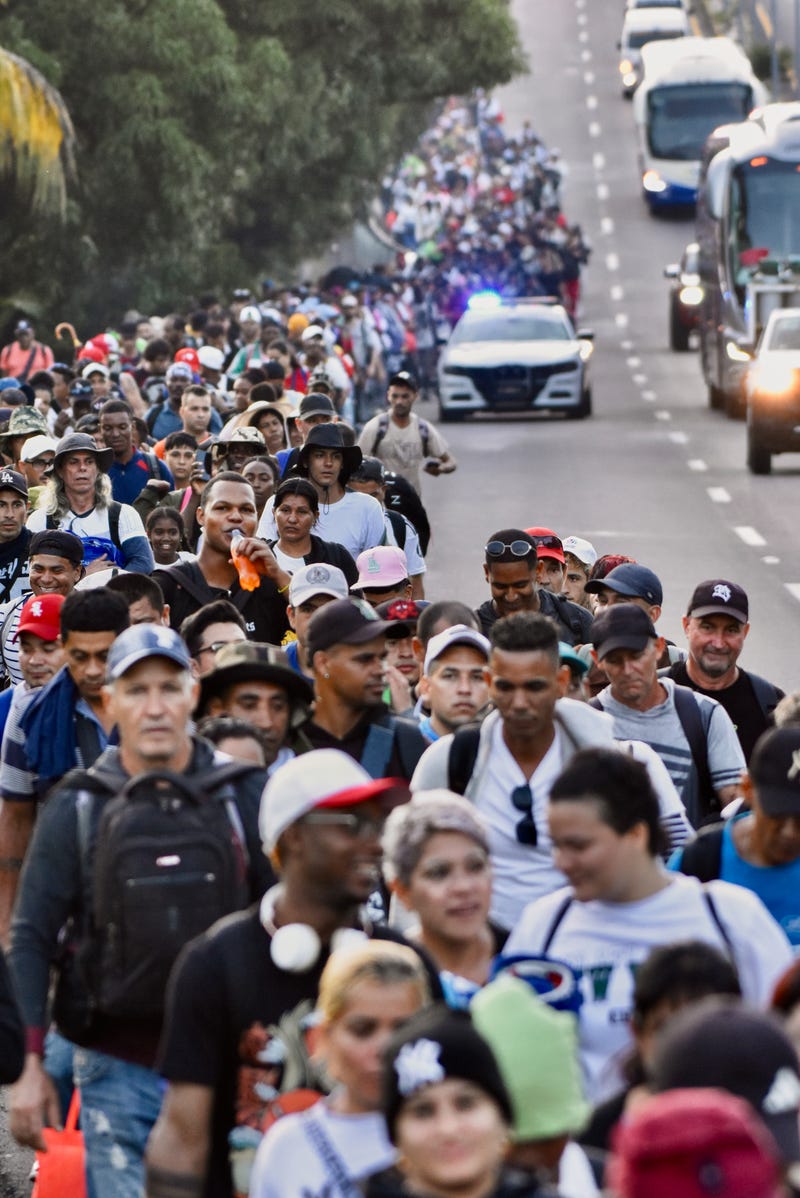
TAPACHULA, Mexico (AP) — A group of about 1,200 migrants set out walking before dawn in southern Mexico on Wednesday aiming for the capital where they hoped to legalize their immigration status and find more work opportunities after a long frustrating wait near the Guatemala border.
Cubans made up the majority of the migrants, but there were also people from Honduras, Ecuador, Brazil and Haiti.
Unlike earlier migrant “caravans” with a goal to reach the United States, Wednesday’s group and others over the past year are trying to coerce Mexican authorities into speeding up the process for asylum and get out of southern Mexico where there are few work opportunities.
Cuban migrant Losiel Sánchez and his wife arrived in Tapachula, near the border with Guatemala, in November. They had hoped to get an appointment through a U.S. government app called CBP One that would allow them to cross the U.S. border, request asylum and likely be paroled into the U.S. while that process played out.
However, U.S. President Donald Trump has ended that program, stranding tens of thousands of migrants who had already been making their way toward the U.S. border. Sánchez decided to stay in Mexico and seek asylum, but despite numerous visits to Mexico’s asylum agency, known as Comar, the couple still doesn’t have an answer about their status.
He said he was scammed by someone claiming to be a lawyer who promised to help speed them through the process.
“Everything is expensive and I can’t pay rent,” said Sánchez, who hopes to have better luck in Mexico City. “There’s no work, they don’t want to give you work if you don’t have papers.”
Anery Sosa, another Cuban migrant, has been in Tapachula for year. Her attempt to get asylum was derailed when someone stole her documents. She had a daughter with a Mexican and hopes to find someone to take care of her during the day so that she can work. Her husband’s earnings alone don’t cover rent and food, she said.
The group of migrants appeared to have organized without a leader over social platforms where frustrated migrants rallied to try to walk their way out of southern Mexico. In the past, Mexican authorities have allowed migrants to walk for a few days and then offer to help with their documents and sometimes transportation.
____
Follow AP’s coverage of Latin America and the Caribbean at https://apnews.com/hub/latin-america